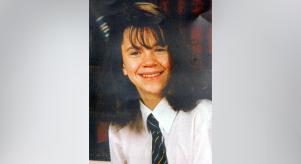
Why rapists are getting away with it
A few months ago, we all started talking about rape: at work, on Twitter, to our friends and family. This was largely thanks to the release of Unbelievable on Netflix: the eight-part series based on the Pulitzer award-winning article, An Unbelievable Story Of Rape.
The series detailed the, well, unbelievable story of a serial rapist and his victims, including one in particular: Marie Adler, who came forward to the police to tell her story and was then accused of lying about it.
Marie’s case and those of the other women the series focuses on are harrowing. But they’re not alone: according to statistics released by the Home Office in 2019, one in five women will experience sexual assault in her lifetime. To put it another way, 85,000 women and 12,000 men, aged 16-59, will experience rape, attempted rape or sexual assault each year in England and Wales.
85,000 women and 12,000 men, aged 16-59, will experience rape.
And yet, in 2019, rape case prosecutions were at their lowest level in a decade. Figures released by the Crown Prosecution Service showed that the number of convictions fell by 26% in the last year and the number of cases charged by the CPS fell by 38%.
It’s not because society has somehow solved the issue of sexual violence. The number of rapes recorded by police more than doubled over six years. People are still being raped; it’s just that their cases aren’t being prosecuted.
That might be because it’s much harder for cases to even reach court. After prosecutors in England and Wales were criticised for their low conviction rates, they came up with a solution: try fewer cases. In 2018, there came the news that prosecutors were being encouraged to take a ‘risk-averse’ approach to prosecuting rape cases. They were told to remove the “weak cases” from the system and by doing so, give their rates a boost.
Of course, that only applied to the cases that made it to the CPS, in the first place. In 2015, official figures showed that, despite a huge surge in the number of reported cases, only 28% of recorded rapes were even referred to the CPS by police.
Even for the cases that did make it to trial, flaws in the system mean the process feels weighted against the victim. In 2018 it was reported that younger men, who represented more than a quarter of defendants in rape cases in the previous five years, were less likely to be convicted of rape than their older counterparts. Only 32% of 19 to 24-year-olds faced convictions in England and Wales in 2017-2018, compared to 46% of 25 to 59-year-olds.
According to Dr Dominic Willmott, who researched jury bias in mock rape trials, jurors are less willing to convict the young defendants, 'For fear of the consequences such a "rapist" label will have on their future.' Unfortunately, those same concerns don’t seem to apply to the victims’ futures.
We saw this play out in the case of Brock Turner, who was found guilty of raping Chanel Miller, while she was unconscious, behind a dumpster at a party. In the statement she read out in court, she said she had been painted as the ‘drunk woman’, while he was the ‘All American’ swimmer with a ‘promising future’ that was being ruined by the accusations. Never mind that he did it.
Often, though, it’s the victim that doesn’t want to take it further. According to a Cabinet Office report that was leaked to the Guardian, even in cases where a suspect has been identified, close to half of victims drop out of investigations. That might be because of what they know they have to go through in order to potentially see a conviction for their attacker.
For starters, there’s the threat of seeing their entire sexual history dragged up in court by the prosecution.
In 2017, a study showed that in almost three out of four cases in the UK, alleged victims of sexual assault or rape were being questioned in court about their sexual history, despite the fact that this isn’t always legal. This means that victims were publicly interrogated about their past by the lawyers that were representing their accused attackers.
As it stands, 98% of rape cases reported to the police go free.
It happened in Ched Evans’ case in 2016, when the footballer was accused of raping a 19-year-old woman. During his retrial, his accuser faced a detailed interrogation over her sex life: the positions she liked, the language she used, the people she had slept with.
At the time of the retrial, campaigners spoke out fearing it would prevent other women from coming forward. Not only is it intrusive and potentially traumatic, but it also puts the onus back on the victim, while playing into the myth that a sexual history means someone’s more likely to consent to sex. In other words, it wouldn’t have been rape.
Then there’s the fact that victims could have their phones taken away by police and see their personal data sifted through, including messages, emails and photographs, social media, apps, location data and audio files. Speaking to the BBC, one woman said her phone was taken for two years; her alleged assaulter’s wasn’t taken at all. The Independent reported an account from a victim who was told by police her case wouldn’t go ahead if she didn’t hand over her phone.




